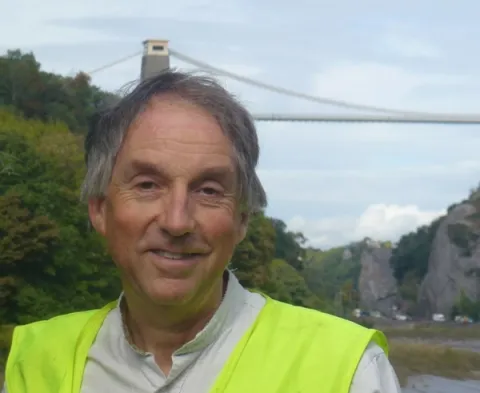Project overview
Our coastlines need to be managed into the future taking into account the effect of climate change on rising sea levels, whilst balancing public investment and benefits. There is a strong desire to move to more sustainable shoreline management, which allows coasts to be more dynamic in less developed coastal areas. Rather than rigidly defending and holding the existing coastline, shoreline management plans now consider the benefits of "managed realignment" and "no active intervention" policies. However, there is an important legacy of hundreds of coastal landfills located in flood plains around our coasts, including estuaries. This constrains a dynamic policy for shoreline management as storms and rising sea levels may lead to increased flushing of contaminants into the environment and erosion of the landfill may result in the direct exposure and release of potentially hazardous waste. It raises the question about the ability to move/process these landfills (facilitating a move to more dynamic coasts), or alternatively to continue to protect these sites under rising sea levels, potentially creating a lock-in to defence infrastructure approaches.
This project aims to apply NERC-funded and other relevant research at the University of Southampton, together with CIRIA generic guidance C718 on "Guidance on the management of landfill sites and land contamination on eroding or low-lying coastlines", to better understand the effective long-term management of coastal-located waste sites on dynamic coasts. In the context of shoreline management planning it will assess a series of different management approaches that have the potential to address the difficulties that coastal landfills pose.
We will identify 3 to 4 coastal landfills from Lyme Regis to Shoreham and consider their impact on three shoreline management plan strategic options (hold the line, managed realignment, and no active intervention) for two different climate change scenarios. Pollution risks arising from the dual hazards of flooding, leading to the release of contaminated water (leachate), and erosion of the landfills will be considered along with the potential for resource recovery from the old site in any options that involve moving and/or remediating the waste in situ.
Our project partners are the Environment Agency, SCOPAC (Standing Conference on Problems Associated with the Coastline) which is an influential network of local authorities and organisations with an interest in the management of the coast of central southern England, the Eastern Solent Coastal Partnership and the Channel Coastal Observatory hosted by New Forest District Council.
This project aims to apply NERC-funded and other relevant research at the University of Southampton, together with CIRIA generic guidance C718 on "Guidance on the management of landfill sites and land contamination on eroding or low-lying coastlines", to better understand the effective long-term management of coastal-located waste sites on dynamic coasts. In the context of shoreline management planning it will assess a series of different management approaches that have the potential to address the difficulties that coastal landfills pose.
We will identify 3 to 4 coastal landfills from Lyme Regis to Shoreham and consider their impact on three shoreline management plan strategic options (hold the line, managed realignment, and no active intervention) for two different climate change scenarios. Pollution risks arising from the dual hazards of flooding, leading to the release of contaminated water (leachate), and erosion of the landfills will be considered along with the potential for resource recovery from the old site in any options that involve moving and/or remediating the waste in situ.
Our project partners are the Environment Agency, SCOPAC (Standing Conference on Problems Associated with the Coastline) which is an influential network of local authorities and organisations with an interest in the management of the coast of central southern England, the Eastern Solent Coastal Partnership and the Channel Coastal Observatory hosted by New Forest District Council.
Staff
Other researchers
Collaborating research institutes, centres and groups
Research outputs
Robert Nicholls, R.P. Beaven, Anne Stringfellow, Daniel Monfort, Gonéri Le Cozannet,, Thomas Wahl, Julia Gebert, Matthew Wadey, Arne Arns, Kate Spencer, Debra Reinhart, Timo Heimovaara, Victor Malagon Santos, Alejandra R. Enríquez & Samantha. N Cope,
2021, Frontiers in Marine Science, 8
Type: review
R.P. Beaven, Anne Stringfellow, Robert Nicholls, Ivan Haigh, Abiy S Kebede & Jenny Watts,
2020, Waste Management, 105, 92-101
Type: article
R.P. Beaven, Robert Nicholls, Ivan Haigh, Abiy S Kebede, Jenny Watts & Anne Stringfellow,
2018
Type: report
R.P. Beaven, A.S. Kebede, R.J. Nicholls, I.D. Haigh, J.W. Watts & A. Stringfellow,
2018
Type: report
R.P. Beaven, A.S. Kebede, R.J. Nicholls, I.D. Haigh, J. Watts & A. Stringfellow,
2018
Type: report
